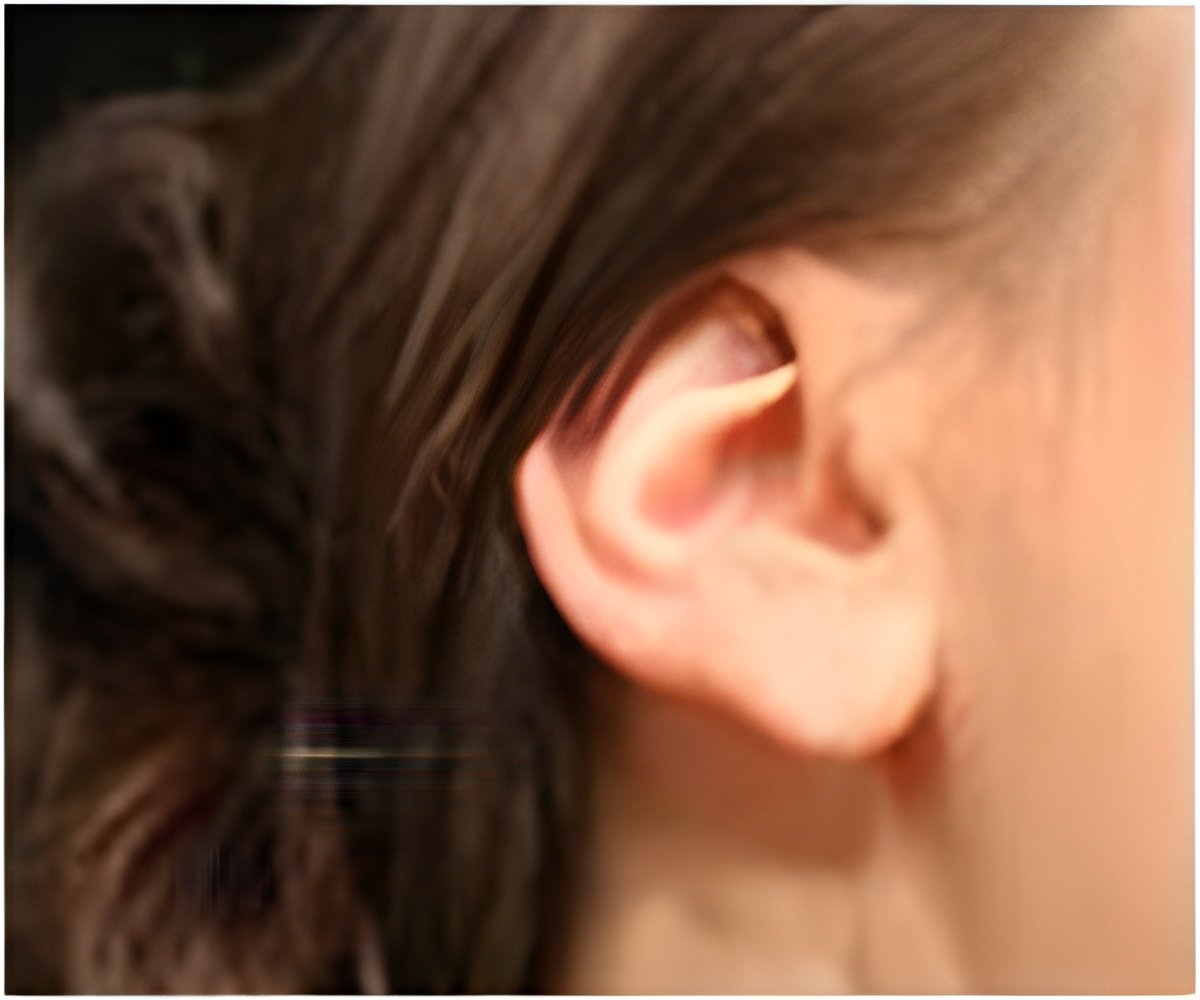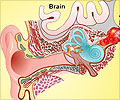Tinnitus, ringing in the ear is caused by inhibition of key neural pathways in brain's auditory circuits, says study led by scientists at the University of Pittsburgh School of Medicine.

"This auditory imbalance leaves the patient hearing a constant ringing, buzzing or other irritating noise even when there is no actual sound," he said. "Tinnitus drowns out music, television, co-workers, friends and family, and it profoundly changes how the patient perceives and interacts with the world."
According to the American Tinnitus Association, tinnitus is the most common service-connected disability among veterans of the Iraq and Afghanistan conflicts. Of the 50 million who have experienced it, 16 million have symptoms severe enough to seek medical attention and 2 million tinnitus sufferers are unable to carry out day-to-day activities.
To identify what goes wrong in the brain's auditory circuits, Dr. Tzounopoulos' team created tinnitus in a mouse model. While the rodent was sedated, one ear was exposed to 45 minutes of 116 decibel (dB)-sound, equivalent to an ambulance siren. Intense noise exposure is thought to lead to damage in the cochlea, an inner ear structure critical to the neural transmission of sound waves, and clinically undetectable hearing loss.
Several weeks later, the scientists confirmed the exposed mice had tinnitus by conducting startle experiments in which a continuous, 70dB tone was played for a period, then stopped briefly and then resumed before being interrupted with a much louder pulse.
Mice with normal hearing could perceive the gap and, because they were aware something had changed, were less startled than mice with tinnitus, whose ear ringing masked the moment of silence in between the background tones.
Advertisements
Dr. Tzounopoulos' new experimental approach has resolved why tinnitus-affected auditory centers show increased responsiveness. After administering a variety of agents that block specific excitatory and inhibitory receptors and seeing how the brain center responded, his team determined that blocking an inhibitory pathway that produces GABA, an inhibitory neurotransmitter, enhanced the response in the region surrounding the DCN in the control brain slices more so than it did in the tinnitus slices.
Advertisements
This means that agents that increase GABA-mediated inhibition might be effective treatments for tinnitus, he added. Dr. Tzounopoulos' team is now trying to identify such drugs.
Source-Eurekalert














